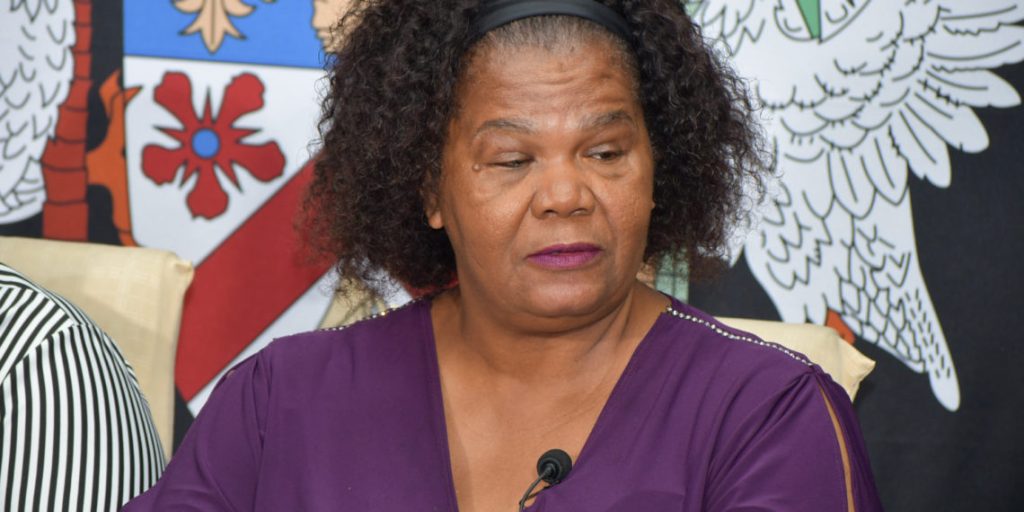Pilot Project at St. Mary’s Biosphere Reserve Informs Development of Single-Use Plastics Ban Awareness Program
A pilot project initiated at St. Mary’s Biosphere Reserve in Nevis aims to inform the development of a comprehensive public awareness campaign concerning the impending ban on single-use plastics. This initiative represents a crucial step towards reducing plastic pollution and fostering environmentally responsible practices within the Federation of St. Kitts and Nevis. The project focuses on gathering data and insights from stakeholders within the biosphere reserve, including residents, businesses, and visitors, to understand their current plastic consumption habits, perceptions of the ban, and potential challenges they foresee in its implementation. This information will be instrumental in tailoring the awareness campaign to address specific concerns and ensure effective community engagement.
The strategic selection of St. Mary’s Biosphere Reserve as the pilot site stems from its unique ecological significance and its function as a microcosm of the larger Nevisian community. As a designated UNESCO Biosphere Reserve, the area exemplifies the delicate balance between human activity and environmental preservation. By focusing on this representative area, the project organizers aim to develop a scalable and adaptable awareness program that can be effectively implemented across the entire island and potentially serve as a model for other regions. The project will explore various communication strategies, educational materials, and community engagement activities to determine their effectiveness in promoting behavioral change and facilitating a smooth transition to a plastic-free environment. The insights gained from the pilot project will directly inform the design and implementation of the broader public awareness campaign, ensuring its resonance with the target audience and maximizing its potential for impact.
The upcoming ban on single-use plastics signifies the Federation’s commitment to tackling the pervasive issue of plastic pollution and its detrimental effects on the environment, particularly marine ecosystems. Single-use plastics, characterized by their short lifespan and disposability, contribute significantly to waste generation and pollution, often ending up in landfills, waterways, and oceans. This poses a severe threat to marine life, coastal ecosystems, and human health. The ban aims to curb the consumption of these harmful materials and encourage the adoption of sustainable alternatives, such as reusable bags, containers, and water bottles. The success of this initiative will depend heavily on public understanding and cooperation, making the awareness campaign a critical component of its implementation.
The pilot project at St. Mary’s Biosphere Reserve adopts a multi-faceted approach to data collection, employing various methods to gather comprehensive information from stakeholders. Surveys are being conducted to assess current plastic consumption patterns, identify the most commonly used single-use plastic items, and gauge public awareness and understanding of the impending ban. Focus group discussions provide a platform for in-depth exploration of community perceptions, concerns, and suggestions regarding the transition to a plastic-free lifestyle. Interviews with businesses operating within the biosphere reserve offer valuable insights into their plastic usage, disposal practices, and potential challenges they anticipate in complying with the ban. These diverse data collection methods ensure a holistic understanding of the community’s preparedness for the ban and inform the development of targeted communication strategies.
Analyzing the data gathered from the pilot project will enable the development of a comprehensive awareness campaign that effectively addresses the specific needs and concerns of the Nevisian community. The insights gained will inform the selection of appropriate communication channels, the design of impactful messaging, and the development of engaging educational materials. The campaign will likely incorporate a variety of approaches, including public service announcements, social media campaigns, community workshops, and educational programs in schools. Emphasis will be placed on highlighting the benefits of reducing plastic consumption, both for the environment and human health, and showcasing practical alternatives to single-use plastics. The campaign will also address potential challenges and misconceptions surrounding the ban, providing clear and accessible information to facilitate a smooth transition.
The success of the pilot project and the subsequent public awareness campaign will be crucial in ensuring the effective implementation of the single-use plastics ban. By engaging with the community and incorporating their feedback, the project seeks to foster a sense of ownership and shared responsibility in tackling plastic pollution. The ultimate goal is to create a lasting behavioral change towards responsible plastic consumption and contribute to a cleaner, healthier environment for present and future generations. The findings from St. Mary’s Biosphere Reserve will provide a valuable framework for implementing similar awareness programs across the Federation of St. Kitts and Nevis, paving the way for a more sustainable and environmentally conscious future. The project embodies a collaborative approach, recognizing the importance of community participation in achieving meaningful environmental progress. By working closely with stakeholders, the initiative aims to empower individuals to become active participants in the transition towards a plastic-free society.
Share this content:












Post Comment